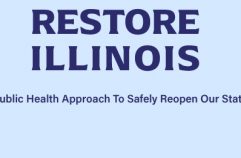New Classification Helps Reopen Centers in Illinois

Is bowling a sport or recreation?
That question has been at the forefront of bowling’s Olympic Games quest for decades. And now, the answer to that question has become an important element in the reopening of tenpin centers in one Midwest state.
The Illinois State Bowling Proprietors Association has agreed, with the approval of its board of directors, to a settlement offer with the state of Illinois, moving bowling into “all sports” guidance rather than the “indoor recreation” guidance originally announced in the Restore Illinois phase four posting on June 22.
The accepted settlement takes effect immediately.
Here are the basic details of the agreement, according to ISBPA Executive Director Bill Duff:
* Bowling centers will be governed by the “All Sports” guidelines under the Restore Illinois Plan, rather than the indoor recreation guidelines. The current guidelines were adopted by the governor on July 30.
* Bar or restaurant services offered at bowling centers will be governed by the guidance for bars and restaurants.
* The “All Sports” guidelines require a 30-ft. distance between groups of 50. This may be accomplished by maintaining at least two unused lanes between groups of up to 50, which is consistent with guidance previously provided by local public health departments.
* Bowling centers will adhere to a maximum capacity of 50 percent of occupancy or 200 people, whichever is fewer, with the understanding that if COVID-19 cases should decrease and there are no outbreaks associated with bowling centers, the governor is willing to revisit that limit.
* In the event the applicable guidelines are changed in the future for all businesses covered by the applicable category, bowling centers will comply with the amended guidelines. So, if guidelines for “All Sports” become more restrictive, they will apply to bowling centers. Likewise, if the guidelines become less restrictive, those also will apply to bowling centers.
“We have also assured the state that our members will continue to comply with procedures developed by ISBPA and BPAA guidelines and best practices,” Duff said.





